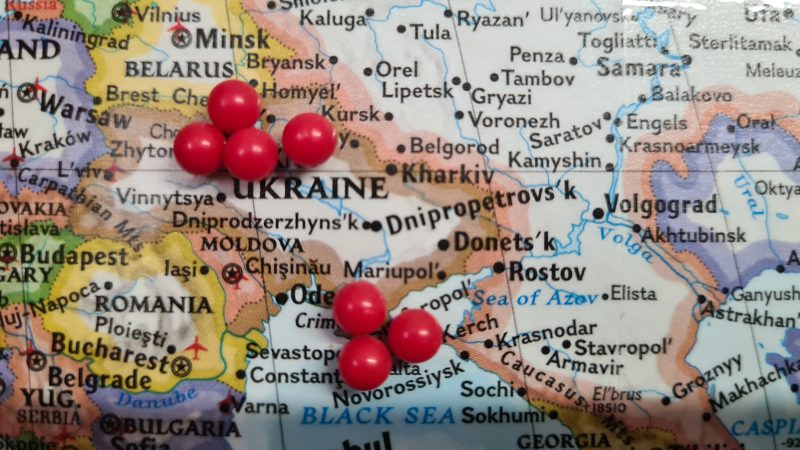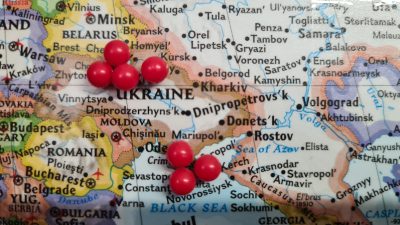Tokyo College Lecture “How the Russo-Ukrainian War is Changing European International Order: The Perspective from Japan”

| Date(s) | Friday, 29 July 2022, 3:00-5:00 pm (Doors open: 2:30 pm) |
|---|---|
| Venue |
Koshiba Hall, Hongo Campus, The University of Tokyo (School of Science, BLDG1, 2F) Registration has reached capacity and is now closed. (July 14) |
| Language | Japanese (English Simultaneous translation available) |
| Abstract |
The Russo-Ukrainian War is changing the structure of international order and security in Western Europe. How did major Western European powers and NATO members like France and Germany react to Russia’s invasion of Ukraine? Did it mend the EU’s diplomatic and security divisions in Western Europe, or did it instead reaffirm them?
For Japan, which in recent years has been deepening security cooperation with NATO, the conflict in Ukraine could have a major impact on its relationship with the organization. How is Japan’s response to the war in Russia and Ukraine perceived in the West, and how will it affect Japan’s future relations with Western nations?
These questions will be addressed by Dr. Guibourg DELAMOTTE, a Tokyo College Professor for the year 2021-2022 and Senior Lecturer of Japanese Studies Department of the French Institute of Oriental Studies (Inalco), and Dr. IWAMA Yoko, Professor at the National Graduate Institute for Policy Studies (GRIPS). |
| Program |
15:00 -15:10 Opening Remarks and Event Overview MINO Takashi (Tokyo College, Deputy Director)
15:10-15:50 Lecture: “European Reactions to the Russian Invasion of Ukraine” Speaker: Guibourg DELAMOTTE (Japanese Studies Department of the French Institute of Oriental Studies (Inalco), Senior Lecturer; Tokyo College, Visiting Associate Professor) The Russian invasion of Ukraine has once again brought war to European soil, and reactions to this development have varied by country. Has the war served to mend the EU’s diplomatic and security divisions or reaffirmed them? Germany, which once deployed troops to Afghanistan, and France, which sent military units to the UN peacekeeping operation in Mali, have both taken non-interventionist stances toward the situation in Ukraine. What are the reasons for this? Given the emphasis that the EU places on international norms, how will they deal with Russia’s military actions in Ukraine, which are suspected of violating both international law and international humanitarian law? After discussing these questions, I examine Japan’s response to the situation in Ukraine in comparison with and in relation to the EU.
15:50-16:30 Lecture: “Russo-Ukraine War and its Impact on German Security Policy” IWAMA Yoko (National Graduate Institute for Policy Studies, Professor) The fact that Russia’s invasion of Ukraine occurred while Germany’s Social Democratic Party was in power is unexpected, in a sense, as the party has long pursued a policy of engagement with the Soviet Union and Russia. However, the implications of that engagement policy changed considerably during the Schröder and subsequent Merkel administrations. With Russia’s most recent invasion of Ukraine, how do we assess Germany’s policy of Ostpolitik thus far, and how will this setback affect Germany’s security and foreign policy?
16:30-16:55 Q&A Moderator: IKEUCHI Satoshi (Research Center for Advanced Science at Technology, the University of Tokyo, Professor)
16:55-17:00 Closing Remarks |
| Speaker Profile |
Guibourg DELAMOTTE (Senior Lecturer at the Japanese Studies Department of the French Institute of Oriental Studies (Inalco), Tokyo College Professor) is a political scientist with dual French and Australian citizenship specializing in security and international relations in Asia with a particular focus on Japan.
IWAMA Yoko (Professor of International Relations at National Graduate Institute for Policy Studies (GRIPS)) specializes in security affairs and diplomatic history of Europe and Japan. |
| Organized by | Tokyo College, The University of Tokyo / Division of Religion and Global Security and ROLES (RCAST Open Laboratory for Emergence Strategies) - Research Center for Advanced Science and Technology, the University of Tokyo |
| Contact | tokyo.college.event@tc.u-tokyo.ac.jp |
| Notice regarding COVID-19 prevention measures |
We kindly request your cooperation in observing the following precautions against the spread of COVID-19 at this event. - Wear a mask at all times and ensure proper cough etiquette. - Disinfect hands at entrance and submit to a temperature check. - Maintain social distance. - Use appropriately marked seats. - Refrain from conversation inside the venue. - If you suddenly feel ill, notify nearby staff and follow their instructions. Please refrain from attending the event if any of the following conditions apply: (a) You have a temperature of greater than 37.5°C (or more than 1° higher than your usual bodily average); (b) You have recently entered the country and are subject to a set period of self-quarantine as determined by the government; (c) You have come in close contact with a person to whom (b) applies. In addition, please be aware that personal information of event participants including names and contact information may be provided to public institutions (e.g., public health centers) depending on the status of infections. Thank you for your understanding. |














